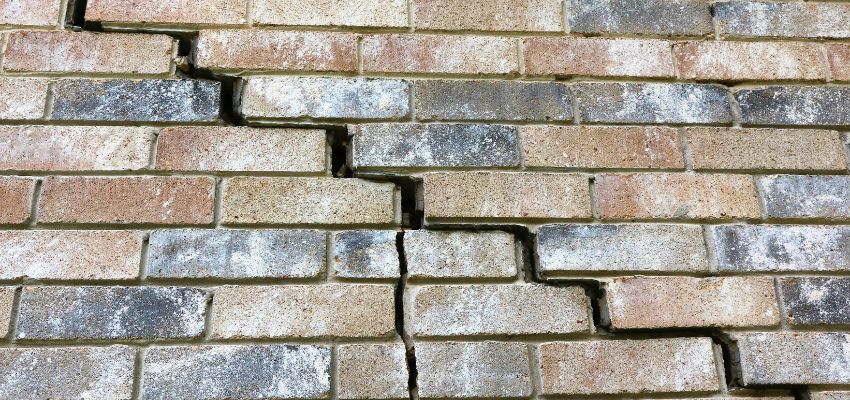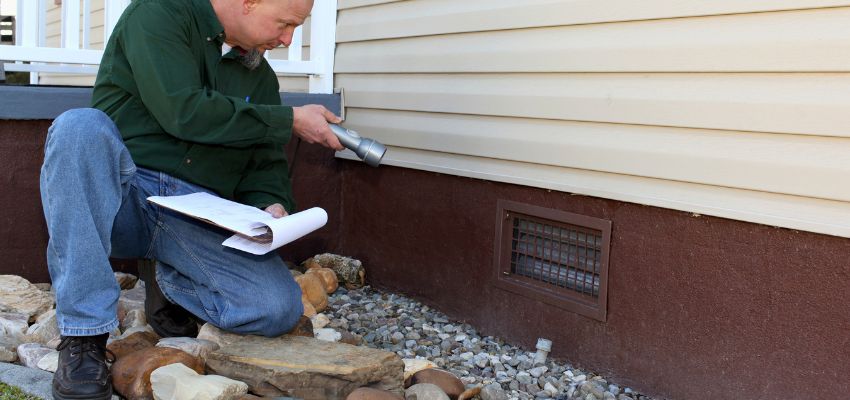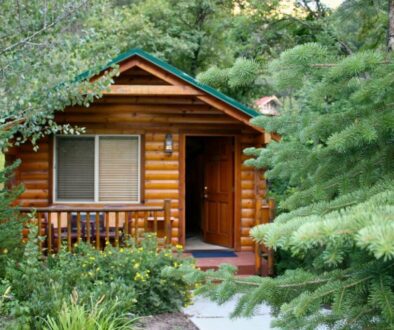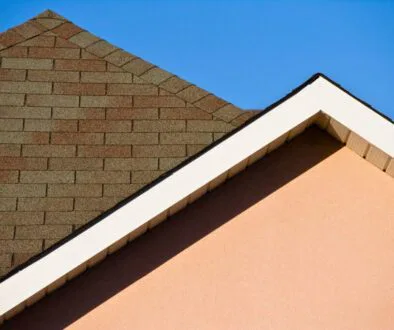This One Foundation Repair Tip Could Save You Thousands!

Published Sept. 25, 2025
A small crack in your foundation can rapidly escalate into a homeowner’s worst nightmare. Overlooking it can lead to costly structural damage and huge repair costs. While serious, timely foundation repair often makes problems manageable and affordable. The real risk is letting minor issues become disasters. Acting quickly protects your home and wallet.
In this article, you’ll learn exactly what steps to take for foundation repair. We’ll show you common problems, explain costs, and share one crucial tip to keep repairs manageable. You’ll find out how to spot issues early, select the right repair professionals, and make smart decisions to protect your home and budget. Use this guide to act confidently and avoid stress about your foundation.
What Is Foundation Repair—And Why It Matters
Foundation repair fixes issues in a building’s foundation. Common problems include settling, cracking, bowing, and water intrusion. Its purpose is to restore the foundation’s structural integrity and, in turn, the stability of the entire building. Repairs can involve sealing cracks, lifting, and stabilizing the structure.
Type Of Foundation Problems
Your foundation’s health can be compromised by several common issues, often linked to the soil beneath your house and moisture.
- Settling: While all homes settle, uneven (differential) settling creates problems. This occurs when one part of the foundation sinks faster than another, leading to cracks and structural shifts.
- Cracking: Small hairline cracks are usually normal. However, larger cracks are different. Horizontal, vertical, or stair-step cracks in concrete or brick are warning signs. They signal serious underlying movement or pressure.
- Moisture: Water is a major threat to foundations. Poor drainage, plumbing leaks, or high water tables can soak the soil, resulting in expansion or erosion. This leads to leaks, bowed walls, and mold.
- Soil issues: Expansive soils, such as clay, swell when wet and shrink when dry. This continuous movement puts significant strain on a foundation, causing it to move and crack over time.
The Cost Of Ignoring Damage
Delaying foundation repairs is a costly mistake. A small crack, fixable for a few hundred dollars, can widen and require major repairs, escalating a $500 repair into a $10,000 project. Ignoring it also causes moisture damage, warping floors and bowing walls, increasing repair expenses.
Cost Breakdown: What You’ll Pay And Why
Understanding foundation repair costs is crucial for effective budgeting. Prices vary significantly. This is influenced by the type and extent of the damage. Your location also plays a role. Additionally, home specifications impact the cost.
Foundation Repair Costs And Local Factors
Foundation repair costs typically range from $2,200 to $8,100 nationwide, with an average of about $5,100. Minor fixes, like sealing small cracks, may cost only a few hundred dollars, while major repairs, such as foundation lifting, can exceed $30,000. Local labor rates, soil conditions, and permit requirements can significantly affect the final price.
Cost By Repair Type
The repair method is the primary factor determining your foundation’s cost.
- Crack sealing/waterproofing ($2,300-$7,300): This involves sealing cracks and applying waterproof barriers to prevent moisture. It’s a preventive measure for homes with leak issues.
- Mud-jacking/slab-jacking ($550-$1,450): This budget-friendly option levels sunken concrete slabs. A grout blend is pumped beneath the slab to lift it. While effective, it may not be a permanent fix for unstable soil.
- Piering/underpinning ($1,000-$3,000 per pier): This more permanent solution addresses significant settling. Steel or concrete piers are installed deep into the ground to support and stabilize the foundation. Though more expensive initially, it offers long-term security.
- Lifting and leveling ($20,000-$30,000): For severe and widespread damage, the entire house may need lifting and leveling. This is the most complex and expensive type of foundation repair.

Additional Costs
Beyond the direct repair costs, you should also budget for a few other potential expenses.
- Permits: Depending on the extent of work and local regulations, you may need a permit. This can cost between $75 and $150.
- Soil reports: If the cause of the foundation issue is unclear, a geotechnical engineer might need to analyze your soil. This report can range from $500 to $3,000.
- Structural engineer assessments: For complex issues, hire a structural engineer. They can determine the problem and recommend a solution. Their reports typically cost between $300 and $1,000.
The Single Tip That Saves Big: Spot And Fix Early
The best way to save thousands on repairs is prompt action. Early intervention often means a minor fix instead of a major headache.
Spotting Early Warning Signs
Regularly inspect your home for these indicators:
- Hairline cracks: Look for new, small cracks. Check drywall, especially above doorways. Inspect concrete floors or exterior brickwork.
- Uneven floors: Use a level or a rolling object to detect sloping floors, which may signal settling.
- Sticking doors/windows: Doors might suddenly jam. Windows could become hard to open. This can indicate foundation movement, which warps their frames.
Why Early Crack Repair Saves You Money
A hairline crack can often be fixed for a few hundred dollars with an epoxy injection. Ignore it, and that crack can widen, let in water, and weaken the wall’s structure. This turns a simple sealing job into a need for reinforcement or underpinning, which can cost tens of thousands. The message is clear: take action immediately and save significant money—don’t let a small problem become a crisis.
The Role Of Concrete Foundation Repair In Early Intervention
Early intervention often involves basic, concrete foundation repair techniques. Sealing small cracks prevents water intrusion and further damage. Minor leveling with methods like mudjacking can correct slight settling before it becomes a major issue. Smaller, affordable repairs are the first defense against larger, more destructive problems.
How To Choose Among The Best Foundation Repair Companies
Choosing the right contractor ensures successful, lasting repairs. Avoid picking solely based on price—prioritize expertise, reputation, and overall value.
What To Look For In A Reputable Contractor
A trustworthy contractor will have a proven track record. Look for companies that are licensed and insured, have positive online reviews, and can provide references. They should also offer a clear, detailed estimate without using high-pressure sales tactics.
Questions To Ask Potential Contractors
When interviewing contractors, be sure to ask the following questions:
- Warranty: What type of warranty do you offer? Is it transferable if I sell my home?
- Materials: Which materials will you use, and why are they best for this repair?
- Methods: Can you explain the repair method you plan to use (e.g., slab-jacking, piers, steel reinforcement)? Why is it the right choice for my home?
- Timeline: How long will the project take? What steps will be taken to protect my property during construction?
Signs You Shouldn’t Delay Foundation Repair
Some foundation issues are serious and require immediate professional attention. If you notice any of the following problems, call a foundation repair specialist right away.
- Cracks that worsen or spread rapidly: A crack that’s actively growing needs attention. If it’s increasing in length or width, it shows ongoing foundation movement.
- Structural shifts: Structural changes like sagging floors or bowing basement walls are serious. Large gaps between walls and ceilings are also urgent warnings. You may also notice doors and windows becoming severely misaligned and difficult to operate.
- Collateral damage: Foundation issues can cause major damage. Plumbing pipes might crack. Siding could pull away from your house. Your roofline might even look uneven. These problems can lead to many expensive secondary repairs.
Frequently Asked Questions
Is foundation repair covered by homeowners’ insurance?
No. Standard homeowners’ insurance usually excludes damage from gradual settling. It also excludes damage from soil movement. These are considered maintenance issues. However, you might have a claim if the damage results from a covered peril. Examples include a burst pipe or a specific natural disaster. Always check your policy.
How long do concrete foundation repairs last?
A repair’s lifespan depends on the method used and whether the underlying cause was fixed. Simple crack injections might last for years. However, comprehensive solutions like underpinning with steel piers can be a permanent fix. These solutions often include a lifetime, transferable warranty.
Can I repair my foundation myself?
A DIY epoxy injection kit may work for very minor hairline cracks. These are cracks less than 1/8 inch wide. However, professional help is essential for anything more serious. For larger cracks, signs of settling, or water intrusion, it’s best to call an expert. Foundation repair requires specialized knowledge, tools, and heavy equipment. Trying to fix a major issue yourself can lead to further damage and create safety risks.

Protect Your Home And Save Thousands With Timely Foundation Repair
Foundation issues don’t go away on their own—they only grow more expensive with time. The good news is that acting early can make all the difference. By spotting warning signs, addressing small cracks promptly, and choosing the right professionals, you can save thousands while safeguarding your home’s stability. Foundation repair protects your biggest investment and ensures lasting peace of mind. Don’t wait until minor damage becomes a financial burden—take control today.
Ready to enhance your home’s strength and style beyond foundation repair? Vintage & Specialty Wood offers reclaimed and specialty wood that adds warmth, character, and durability to any space. From custom beams to unique wood finishes, their timeless materials will make your home truly one of a kind.
Hire The Timber Experts For Your Next Project
Vintage & Specialty Wood should be your source of the highest quality timbers from around the world. When it comes to fabricating and installing reclaimed wood or specialty wood products in your home, we don’t cut corners. We offer many reclaimed wood and specialty wood products such as Douglas Fir, white oak, and much more. We also offer timber framing and wood flooring services as well. Contact our team today to speak to a timber expert about what Vintage & Specialty Wood can do for you.

This Blog Is Fact Checked
This content has undergone meticulous fact-checking by our team of internal experts. Gain a deeper understanding of the high editorial standards we uphold on our website here.

About The Author
Experience, exploration, and knowledge are the hallmarks of writer Rei Bayucca. Her dedication to crafting articles that both inspire and educate will leave you thinking long after you’ve finished reading.




